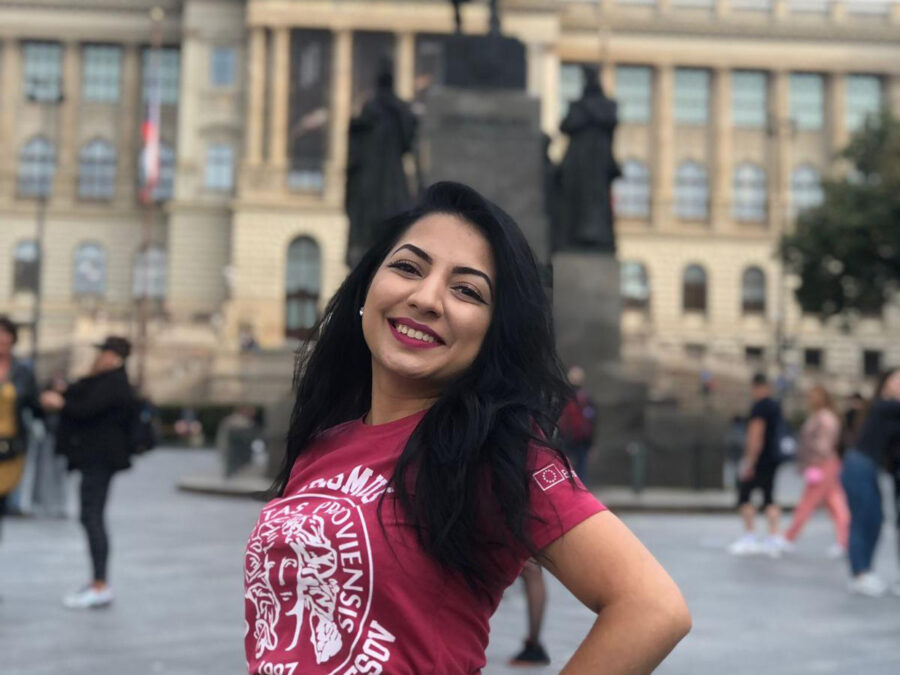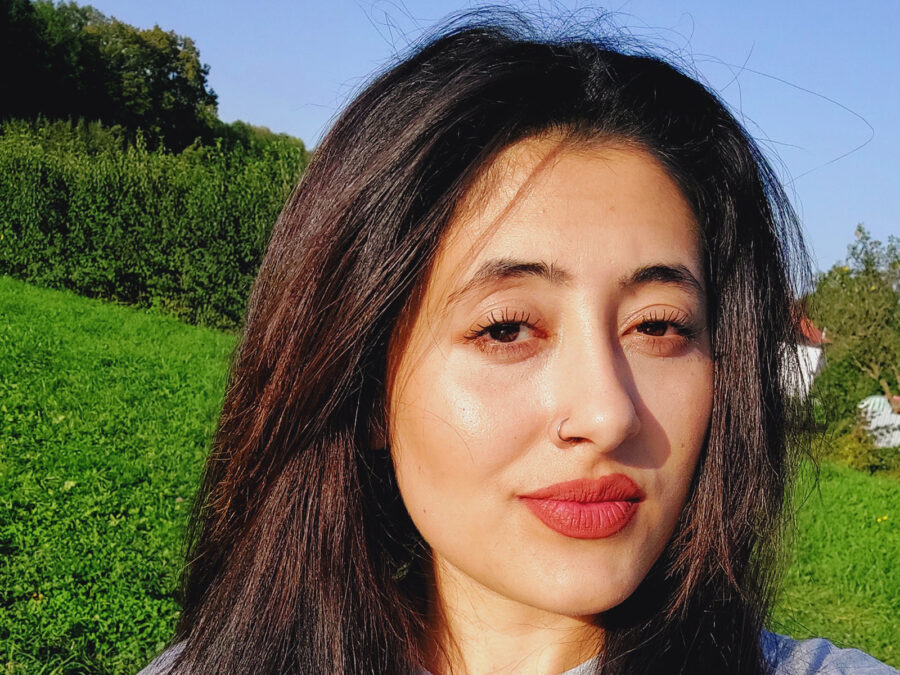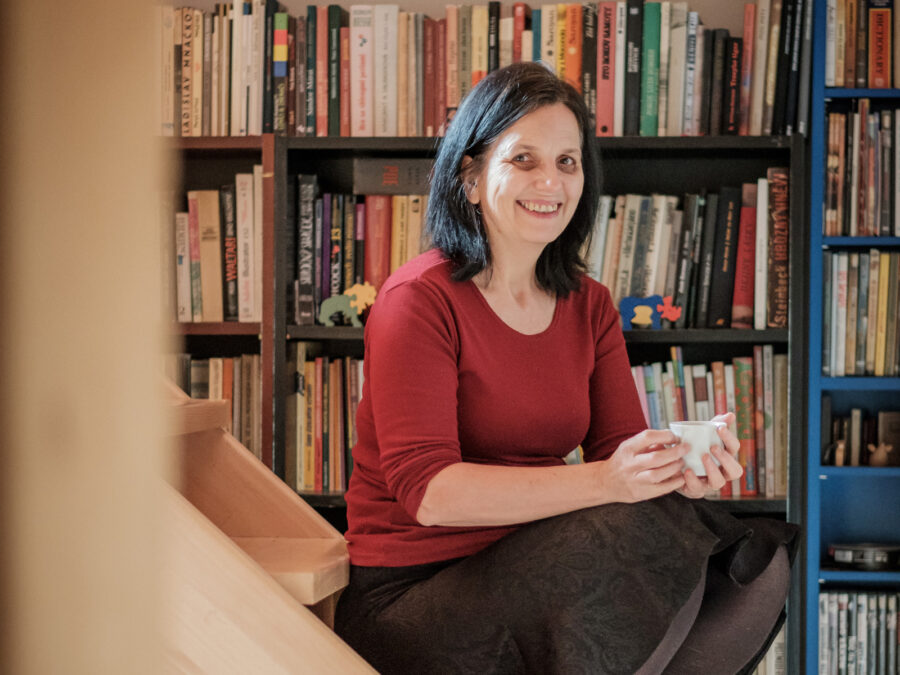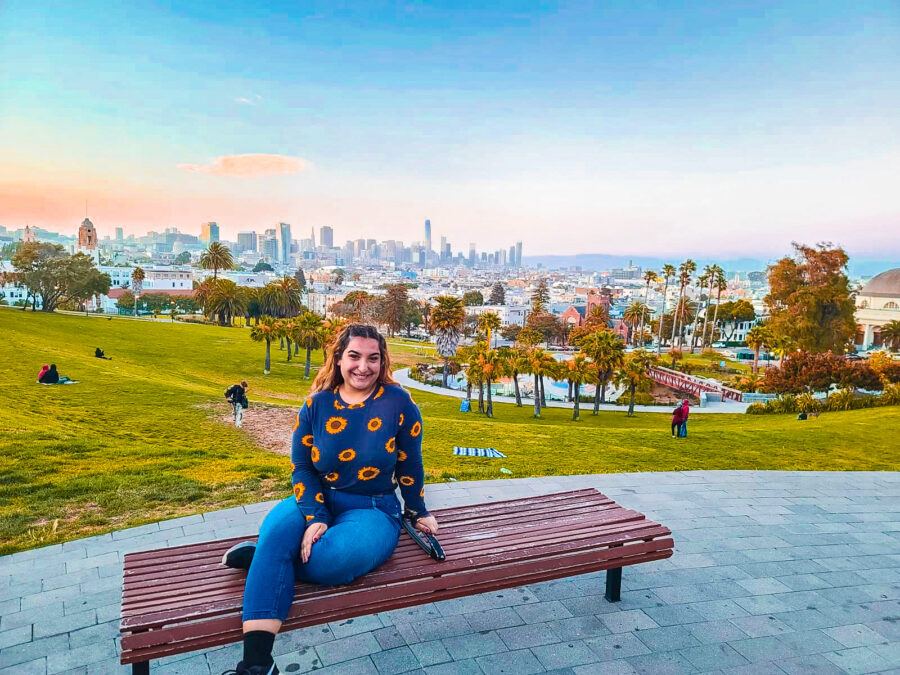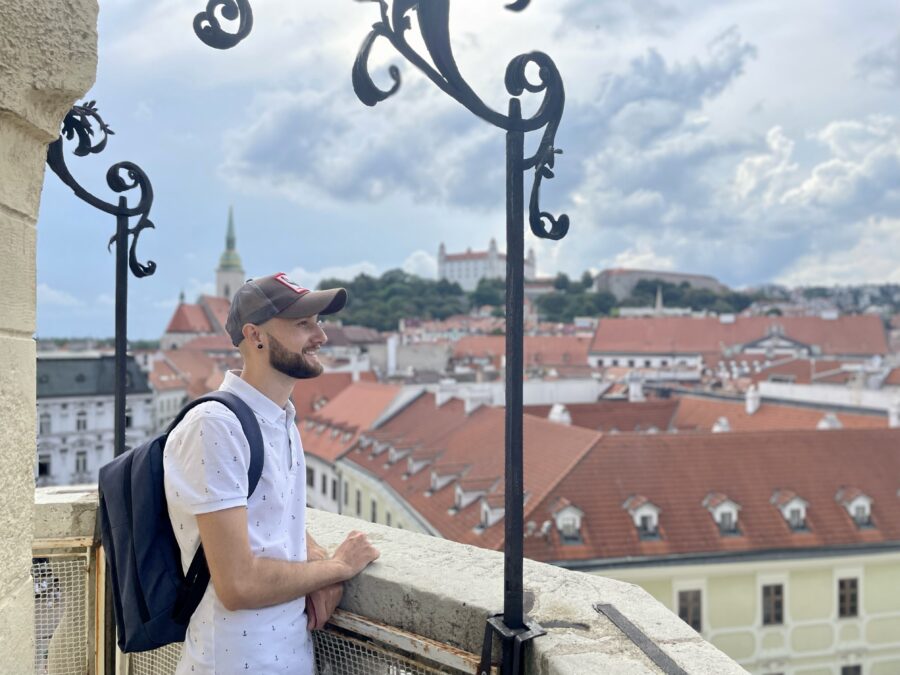Romani teacher from housing estate school in Slovakia with mostly Romani students says her pupils even come to school when sick because they don’t want to miss out
Educator Stanislava Dotková says children don’t care whether their teachers are Asian, Black or Romani, they have to be won over by how you treat them.
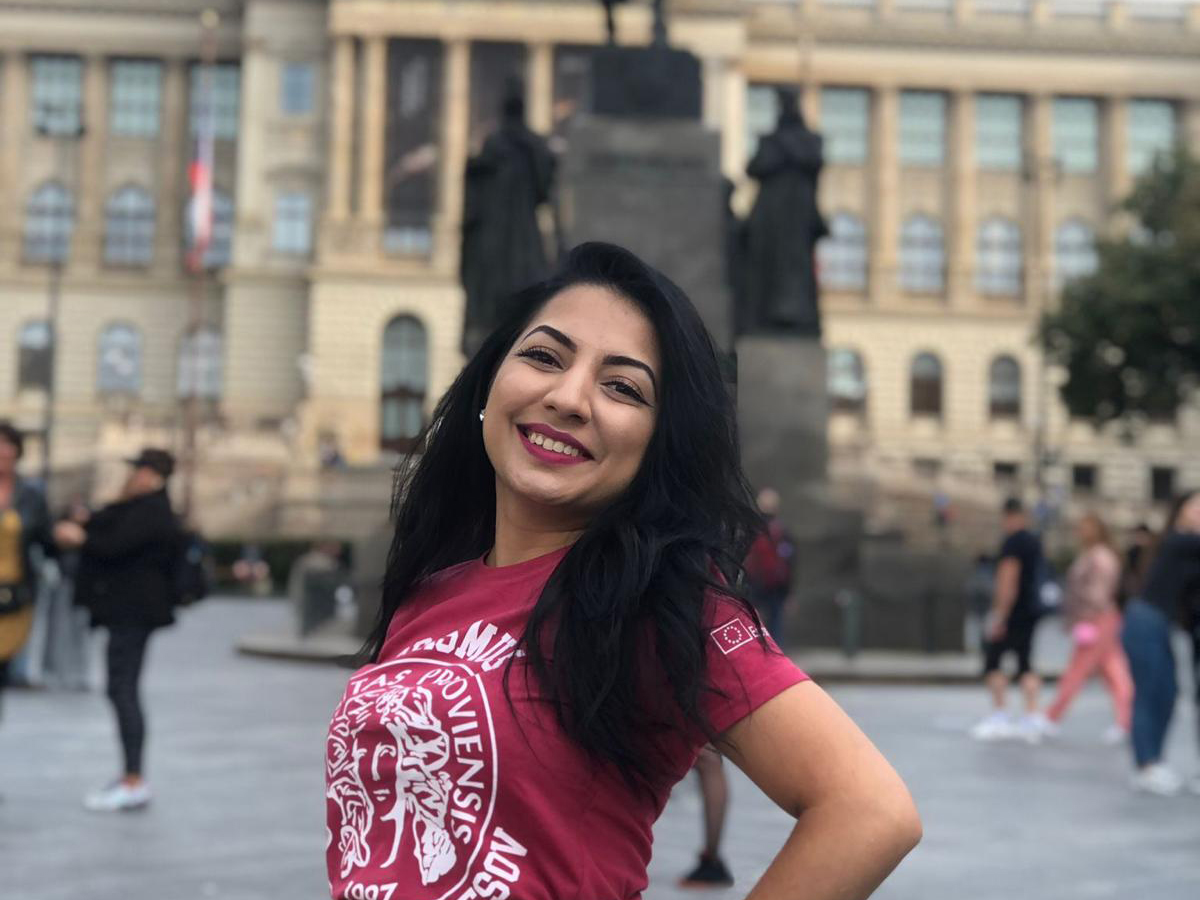
Slovenskú verziu textu si môžete prečítať tu. Rozhovor preložila Gwendolyn Albert pre portál romea.cz.
After working as a caregiver to autistic children, she is teaching lower primary pupils in Košice, Slovakia at the Luník IX housing estate’s Ľ. Podjavorinská Primary School. “My work with autistic children is my biggest inspiration when teaching children from excluded communities,“ she says.
Dotková also believes Romani men and women of the younger generation have an obligation to spend their free time with Romani children. “We have to show them that if they work on themselves, it will yield results, even if it can be hard at times,” she says.
“Results won’t just happen from one year to the next, it’s a marathon on a very long track, but I believe it will be worth it,” the educator says. In an interview for Slovak online magazine Romano Forum, Dotková also explains whether the fact that she herself is Romani aids her with teaching Romani pupils, why they have a sensory carpet in the classroom, and what she finds is missing from the education of excluded communities.
As a society, what is it that we should be taking into account when educating children from excluded localities, but aren’t doing yet?
Today we’re just interested in children when they are at school. We say we’re going to educate them, but we ignore what is happening to them when they go home. We take no interest in how others treat them outside of school, or what the environment of their home is like. We don’t even deal with how they feel and whether anything is bothering them.
We also lack the creation of space for spending free time with these children in a meaningful way. What good is it to teach them for four or five hours and tell them what they should and shouldn’t do, when once the bell rings for them to go home, nobody is watching out for them? Slovak schools lack recreational activities that would extend the child-raising phase.
Is a lack of recreational activities for children from excluded communities the weak point where things are breaking down here?
It depends whether we’re discussing nursery school, primary school, or secondary school. I teach at a primary school, so that’s what I’ll talk about.
A lack of recreational activities is one aspect. However, what bothers me the most, and what sometimes even demotivates me, is the realization that I will be able to teach my pupils for just four years before they move to upper primary school.
At that time, puberty starts and everything is more complicated when that happens. Just like other children, these children could encounter a bunch of others who will lead them down the wrong path, and today even drugs are quite “popular”. So after these first four years, one loses sight of these children and it becomes impossible to influence the direction they take.
We aren’t teaching them how to resist the risks that await them, how to combat them, just like we never speak with them about how they might encounter racism in the future, or bullying. We never discuss the fact that anything of that kind has to be dealt with immediately, that one shouldn’t wait until such a situation escalates. The conflict could reach a phase where it will no longer be clear that they were victimized first.
It’s quite important to speak with children about what might await them and to teach them resilience. We can’t change what they will face in the future, but we can at least prepare them for it.
Maybe it would help if the school had a psychologist whom the pupils could speak with about what they are experiencing.
Such psychologists are in the school quite frequently. It’s another matter whether they actually offer the space so the children can confide in them and have a chat.
From my experience as a student and in working in schools, I know that sometimes the psychologist comes into the classroom, watches what the children are doing, takes notes or records what everything looks like. If a child doesn’t seem right to the psychologist, then he doesn’t speak with him or call him into his office, the examination is arranged for elsewhere. My perception is rather that the person in whom a child might confide is their teacher.
Do you have the space, when teaching, to give pupils individual attention?
I do my best, but certainly I don’t have as much space as I’d like. If a child is so tired that he’s lying on the desk, or is crying, with glassy eyes, I know something’s not right and I do my best to find out what’s wrong with him. However, I don’t have the space to remove a pupil from the collective and give him all my attention, there’s nobody else to watch the rest of the class.
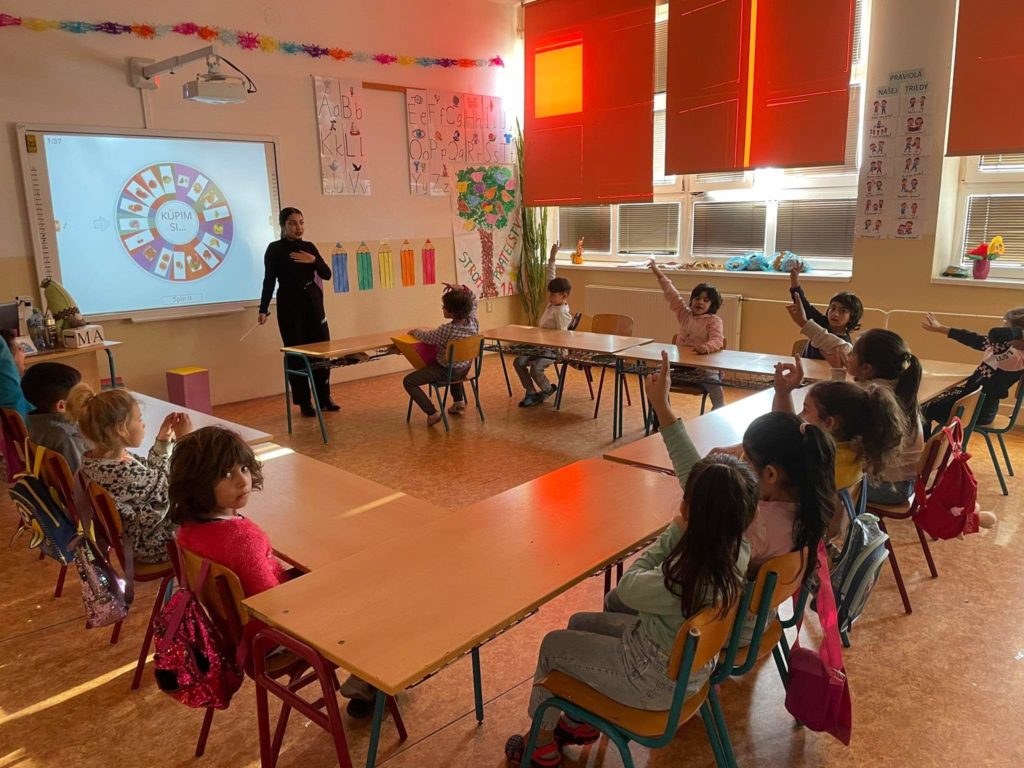
When you decided to study pedagogy, did you know you would want to focus on educating children from excluded communities?
Not at all. All I knew was that I wanted to be a teacher. After ninth grade I went to the high school for pedagogy.
It wasn’t until I was in college that I focused on children from the Romani minority. Basically, I didn’t really get into that until I got a scholarship from the Roma Education Fund and came into contact with other Romani people studying in universities all over Slovakia. Many of them presented the idea that since we’re here, we’re young and educated, let’s aid the younger generation of Roma. Frequently they asked who would do that if not us?
That was the first milestone, after that I began to educate myself more about the subject and I applied for several workshops and seminars.
What were the next milestones?
The second, quite essential milestone, was learning that our university studies were not focused on working with any minorities at all, to say nothing of the Romani minority. There were 150 of us in the classroom. I imagined those 150 future teachers would certainly come into contact with children from excluded communities one day, and they probably would not be able to cope, because they have no experience with them.
For that reason, when choosing where to do my practicum, I looked for a school predominantly attended by Romani children. That’s how I came to the Re-education Center in Košice, where up to 80 % of the pupils are from the Romani minority. Then arrived the third, determinative milestone. I discovered that I really enjoyed working with them – and all the more because they enjoyed working with me. I realized it makes sense.
Did the Romani children behave differently toward you than toward your classmates?
Yes, they accepted me much better and they didn’t even talk back when I gave them tasks. They were intentionally rude to some of my classmates.
Why didn’t they respect them?
I think the children saw, and mainly sensed, that my classmates did not approach them as their equals. Some of my classmates looked down on the Romani children, distanced themselves from them, or looked disgusted while speaking to them.
They never said anything specific to them, but such a case is not about words. These children sensed that the adults were biased against them, so as a defense mechanism, they mocked them.
Could their different behavior toward you have been caused by the fact that you are also Romani?
I don’t believe so. Children don’t care if you’re Romani, Asian or Black. When I began teaching at the Ľ. Podjavorinská Primary School at Lunik IX in September, children in my class had no idea that I’m Romani. They automatically believed that if I’m a teacher, I must be a gadje [non-Roma], because before that they had just had majority-society teachers. Moreover, I never spoke Romanes with them, just Slovak.
When the Day of the Romanes Language came [Editor’s Note: 5 November], I told myself that we could play with something where we would practice languages, and on that occasion I spoke Romanes. They stared at me and one of them asked: “Are you Romani?” I said yes, and I asked if they had noticed that before.
They said no, because I just speak Slovak. It didn’t seem necessary to me to announce it to them, after all, my skin is darker, my hair is black and curly, my eyes are dark brown, and my features are Romani overall.
Did their approach to you change after that?
They just began to use Romani expressions more frequently in my presence. However, it didn’t make anything easier for me, I still had to win them over through my own behavior.
The teacher who taught my class in their “zero year” was from the majority society, and she also had quite a nice relationship with the children. Before they got accustomed to me, they kept asking for her and wanted her back. She bonded with them by showing them she cared about them. We have 45 teachers at my school, and I’m the only Romani one. Some get along with the children better, some worse, ethnicity doesn’t play a role in that.
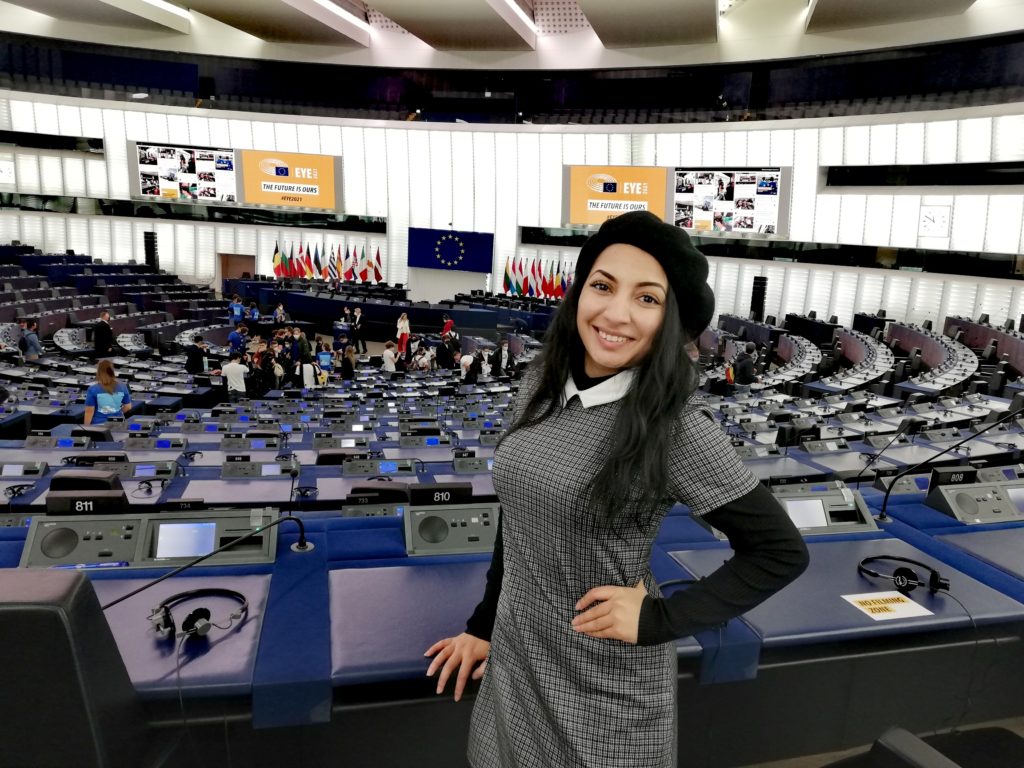
What do you believe does play a role?
To not just emphasize the education of the children, but also to care for their emotions. Children from excluded communities quite frequently are growing up in big families where they may not get as much individual attention as they need. They are not accustomed to saying how they feel, because for different reasons, how they feel is not spoken of at home.
There are many handbooks on the theory of how to integrate such children. Such guidance is, naturally, immeasurably important, but in addition, a teacher should also speak with pupils about their emotions to create a relationship, so the children will not be afraid to say what is bothering them.
How do you try to do that in your classroom?
Each morning we sit in a circle and the children hand a ball to each other. Whoever is holding the ball gets to say what his morning was like, what he experienced, or how he feels.
What if some children don’t want to speak?
I don’t know if you know the story V hlavě [Editor’s Note: An animated film from Disney/Pixar – English title Inside Out]. The main characters are these little creatures representing five different emotions we all have in our heads – fear, sadness, joy, disgust and anger.
I printed out pictures of the creatures and I gave each pupil a pin with his or her name on it. When they come to school in the morning, they put their pin on the creature with whom they most identify. As they go home, they are able to change their choice. When we end the day we compare with the pupils how they felt in the morning, how they felt after lunch, and why their feelings changed.
I was inspired to do this activity by the most recent workshop I attended. It was called “School is not just about teaching”, and that underlines my own pedagogical strategy.
In addition to attending workshops, you’ve also visited the European Parliament, and you also completed an internship through the Erasmus+ program in Prague. Have you also been inspired by something from abroad?
I was chosen for the European Parliament by the organization Phiren Amenca, where along with Romani people from all over Europe I attended different discussions and lectures about discrimination and racism. I made useful contacts for the future there.
During my studies in Prague I completed a two-month internship at the National Institute for Autism (Národní ústav pro autismus – NAUTIS). Work with autistic children had interested me from the beginning, but during my studies in Slovakia I never got the opportunity to visit such a workplace.
NAUTIS is divided into a special education center, a recreational center, a nursery school, and what is called a respite or a relief center. I did the rounds of those four places. I worked for eight hours a day, Monday through Friday.
In the morning I was assigned a child to accompany during the day. Sometimes it was the same child for one week, at other times more than one. I worked with children between the ages of four and 15, but I also got experience with youth around 20 years old. The work at NAUTIS was and still is the biggest inspiration for me when teaching children from excluded communities.
What similarities do you see between teaching children with autism and teaching pupils from excluded communities?
Some autistic children have difficulties with communicating and with interacting socially. They are not accustomed to establishing contact or creating closer relationships. Many Romani children from excluded communities have a similar problem, especially if they end up somewhere together with non-Romani children and do not know how to fit in among them.
Children from both of these groups have a tendency to suffer sudden, aggressive fits or tantrums if tension accumulates in their central nervous system that they are unable to control on their own.
Communication is another matter. Autistic children tend to have problems with perception and understanding if you speak too quickly or articulate poorly. Among the children from marginalized communities, what happens is they arrive at primary school speaking only Romanes.
In some cases, there is also a similarity with such children having worse personal hygiene. It’s true that for children from excluded communities, that is influenced by whether they even have access to any water or not.
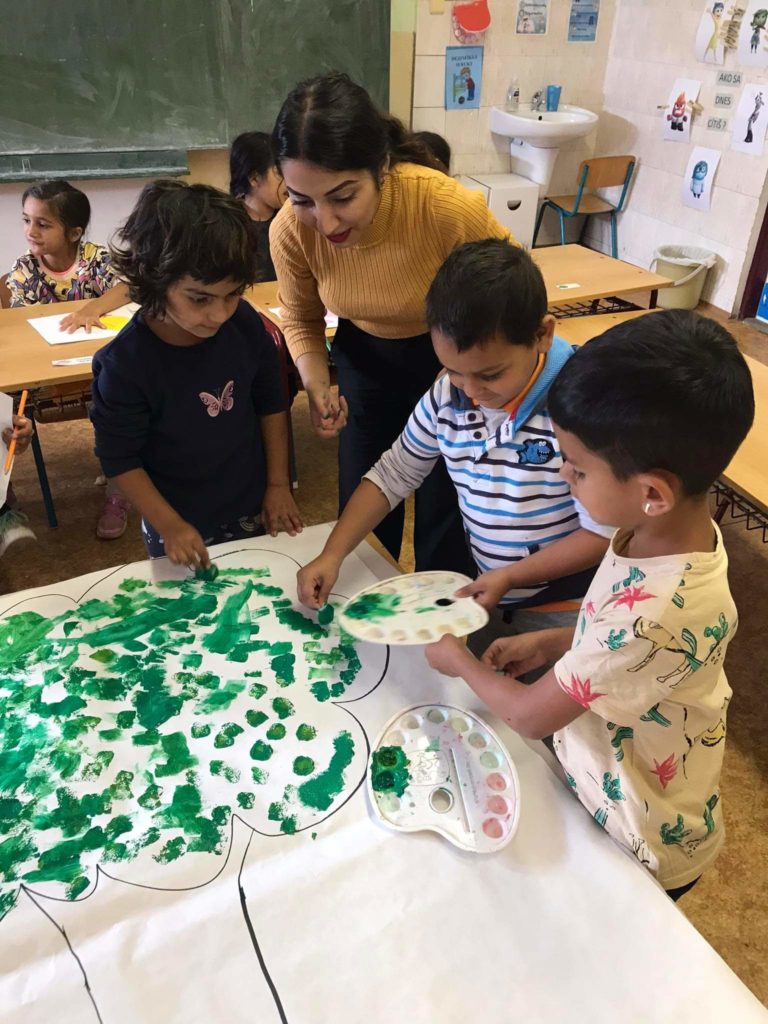
Do the same approaches function for both groups?
In many cases, yes. Frequently today, in my class at Luník IX, I apply what worked for me during my internship at NAUTIS. I do my best to encourage the children not to be afraid to get to know each other better, to speak with their fellow pupils. Childhood is ideal for that. We have no biases at that time, and friendships are established much more easily than they are in adolescence or adulthood.
At NAUTIS I also learned how to calm children who are having fits so they won’t harm themselves or anybody else nearby. A colleague once told me that one of the children was biting during such fits, so I advised her as to where to grab hold of a child to calm them. Later she came to thank me because it worked.
The children in our school frequently need to release the tension that is accumulating in them. In addition to physical activity, however, relaxation can also do that. For that reason, I brought a sensory carpet into the classroom for them to walk on. We squeeze an anti-stress ball together sometimes. During instruction we also have “managed relaxation” – I teach them breathing techniques, or I have them close their eyes while I tell them what they should picture in their minds.
As far as communication goes, I’m used to speaking more clearly with the autistic children and repeating myself more often. I used to explain what I was trying to say patiently, using gestures. With those Romani children who don’t know a single word of Slovak in the beginning, I also use pictures to communicate. For example, I associate a picture with words – they see a picture, they say what it is in Romanes, and then slowly translate it into Slovak. That was how they learned Slovak.
With both groups, I practiced how to correctly wash their hands, or how to use the toilet and correctly wipe themselves. We practiced that by sitting on some balloons that I put on a chair.
Another colleague who also had experience with autistic children said that after working with them, a teacher is also prepared for children from excluded communities.
Is there, in your view, a need to complete some kind of special education before becoming a teacher at a school where most of the pupils come from an excluded community, or is it something that can be learned naturally?
If a person is empathetic and perceptive enough, then certainly it can be learned. I didn’t have to meet any special prerequisites when I went for my first practicum in Košice at Luník IX, and now I am running an entire class.
Are you glad you set out on this path?
Very. For example, in September, a little girl came to my class who didn’t speak at all. I was almost certain she was deaf. Then I ascertained that she can hear, but she doesn’t speak Slovak, and that’s why she was afraid to speak. Now she already manages to continuously converse and she is one of the best in the class at Slovak. She already knows all the letters and she is able to read syllables.
Overall, in my class, I’m seeing enormous progress. Since September their behavior has improved significantly: Immediately upon coming in they wash their hands, take their seats, raise their hands if they want to say something, and automatically say “please” and “thank you”. I’m proud of them.
I have to mention one example. I have two sisters in my class. Once, when they were both ill and supposed to stay home from school, they told their parents they were going to their grandma’s to watch cartoons, but they actually “ran away” and came to school. I wondered what they were doing there. They came without their schoolbags and without snacks, but their noses were stuffed up. I wanted to know what was going on, because I knew that their mother would never have sent them to school hungry. I called her, and she believed her daughters were with their grandmother. The girls then confessed to me that they simply did not want to miss school. I told myself that I must be doing something right if children aren’t running away from school, but towards it. (Laughs).
It also pleases me when girls in my class say they also want to be teachers and that I’m their role model. They want to help me with everything and they frequently imitate me.
You and your boyfriend have established the “Roma for the Future – Chance for a Better Life” civic association, where you concentrate on aiding children from excluded localities. How is that going?
The association is still “in diapers”, but we want to host educational activities. Currently we are writing projects and applying for grants. We feel that everything else is aimed mainly at culture, and that not enough is being invested into education as should be.
How do you imagine the future of the Roma will be?
I imagine that we ambitious Romani youth who already have some education and experience will not move abroad, instead we will come together and dedicate ourselves to the younger generation of Roma in our free time. We have to show them that if they work on themselves, it will yield results, even if it will be hard at times.
The younger generation should persist in this. It’s improving already now, we just have to keep going. It takes time, just like anything else. It won’t happen from year to year, this is a marathon on a very long track, and I believe it will be worth it.
Stanislava Dotková (24) is a teacher of lower primary pupils in Košice, Slovakia at the Luník IX housing estate’s Ľ. Podjavorinská Primary School. She comes from Helcmanovce. She studied primary and special needs pedagogy at Prešov University. She won the Rector’s Prize for both her bachelor’s and master’s theses. Through the Erasmus+ program she spent two months interning in the Czech Republic at the National Autism Center. Slovak President Zuzana Čaputová invited her to the presidential palace as part of a group of Romani people who had been fighting on the front lines during the COVID-19 pandemic. She and her boyfriend Tomáš have established a civic association, “Roma for the Future” (Rómovia pre budúcnosť).
Rozhovor preložila Gwendolyn Albert pre portál romea.cz.
Našli ste v článku chybu? Napíšte nám na [email protected].

